What is the top hobby that makes you smarter? Read Books.
Yes, it is that easy: The top answer is Reading ( anything from books, news, pamphlets, online, offline, whatever, etc.). Just read man. I read on my way to and from work while I am on the train or bus. 30 minutes on my way to work and 30 minutes on my way back 5 days per week.
If you want a smarter kid, teach your child to read as early as possible and instill in them a love for books. Because as soon as they can read, they can teach themselves. And that will be a life-long advantage over their peers who don’t have that same ability.
He later got a PhD in Physics from MIT, and died in 1986, one of the astronauts aboard the space shuttle Challenger. The library that refused to lend him books is now named after him.
I will be listing the books that I read on this page, starting with the most recent ones.
Download our Books Quiz and Trivia
2000+ Books Quiz Trivia and Brain Teaser
Web: https://awscloudpractitionerexamprep.com/quizandbrainteaser/
iOs: https://apps.apple.com/ca/app/all-subjects-quiz-brain-teaser/id1603487636
Android: https://play.google.com/store/apps/details?id=com.quizandbrainteaserfree.app
Windows/Microsoft: https://www.microsoft.com/store/apps/9PML05P5X85B
Amazon Web: https://www.amazon.com/gp/product/B09RCW3F5J
Amazon Android: https://www.amazon.com/gp/product/B09RCQKHYG
#books #booksquiz #bookstrivia #trivia
When Breath Becomes Air.
By Dr. Paul Kalanithi

This book brought me to tear. Dr Paul Kalanithi was one of the top resident neurosurgeon in the universe and as he was about to finish his residency, he was diagnosed with lung cancer at age 36. He later died 2 years later. He found the courage and strength to write this book while being terminally ill, and oh boy he wrote it beautifully. He described his life, his battle with cancer, his near death experience, his success and failure as Neurosurgeon resident and husband in an elegant and beautiful way. I STRONGLY RECOMMEND THIS BOOK TO ANYONE who wants a real life description of the intersection of sciences, medicine, literature, near death experience, critical illness, cancer, etc. Order it on Amazon books
- Idea Man: A memoir by the cofounder of Microsoft.
By Paul Allen
If you love technology and pro sports, you will love this book. This is one of my favourite autobiographies. Paul Allen describe how he grew up in Seattle area, meeting Bill Gates at LakeSide private school, hacking and coding for extremely long hours in their teenage days using time sharing terminals back in the day; he then pivots to his Microsoft days from the beginning with MS DOS until he left the company. He then talks about his sports team (Blazers, Seahawks, Sounders) on a fan and owner standpoint. He also talks about his passion for music, and his ongoing support for scientific research. Fascinating… Read it now. The INNOVATORS
By Walter Isaacson
The Innovators: How a Group of Hackers, Geniuses, and Geeks Created the Digital Revolution (2014) is a nonfiction book written by Walter Isaacson. The book details the history of the digital revolution through several pivotal innovators who created early computer breakthroughs and later larger systems like the Internet. The author also asserts that many innovators’ successes throughout history happen often with the help of other contributors via teamwork. This book also delves into the topic of artificial intelligence, the founder being British computer science pioneer Alan Turing.[1][2]The Innovators is an overview from the beginning of computer science to the present, and seeks to understand the results of human-machine symbiosis.[3] Innovators covered in the book include these: Charles Babbage, Ada Lovelace, Vannevar Bush, Alan Turing, Grace Hopper, John Mauchly, John von Neumann, J.C.R. Licklider, Doug Engelbart, Robert Noyce of Intel, Bill Gates and Paul Allen of Microsoft, Steve Wozniak and Steve Jobs of Apple, Tim Berners-Lee, Larry Page of Google, Jimmy Wales of Wikipedia, and Lee Felsenstein of Osborne. Order it on Amazon books
The intelligent investor
by Benjamin Graham

The Intelligent Investor by Benjamin Graham, first published in 1949, is a widely acclaimed book on value investing, an investment approach Graham began teaching at Columbia Business School in 1928 and subsequently refined with David Dodd.[1] This sentiment was echoed by other Graham disciples such as Irving Kahn and Walter Schloss. The Geography of Genius
By Eric Weiner
Travel the world with Eric Weiner, the New York Times bestselling author of The Geography of Bliss, as he journeys from Athens to Silicon Valley—and throughout history, too—to show how creative genius flourishes in specific places at specific times.
Inside Apple: How America’s Most Admired–and Secretive–Company Really Works
By Adam Lashinsky

INSIDE APPLE reveals the secret systems, tactics and leadership strategies that allowed Steve Jobs and his company to churn out hit after hit and inspire a cult-like following for its products. How Google Works.
The rules for success in the Internet Century.
By Eric Schmidt & Jonathan Rosenberg, with Alan Eagle
HOW GOOGLE WORKS is an entertaining, page-turning primer containing lessons that Google Executive Chairman and ex-CEO Eric Schmidt and former SVP of Products Jonathan Rosenberg learned as they helped build the company.
Tech Titans
Steve Jobs in his own words.
edited by George Beahm
Full-color series-six bios in one! It takes more than one person to bring about change and innovation. Explore the lives of the people who have had a huge impact on technology today Steve Jobs
by Walter Isaacson

Based on more than forty interviews with Jobs conducted over two years—as well as interviews with more than a hundred family members, friends, adversaries, competitors, and colleagues—Walter Isaacson has written a riveting story of the roller-coaster life and searingly intense personality of a creative entrepreneur whose passion for perfection and ferocious drive revolutionized six industries: personal computers, animated movies, music, phones, tablet computing, and digital publishing. I, Steve.
Steve Jobs in his own words.
edited by George Beahm
Drawn from more than three decades of media coverage—print, electronic, and online—this tribute serves up the best, most thought-provoking insights ever spoken by Steve Jobs: more than 200 quotations that are essential reading for everyone who seeks innovative solutions and inspirations applicable to their business, regardless of size. Elon Musk: Tesla, SpaceX, and the Quest for a Fantastic Future.
by Ashlee Vance (Author)

In the spirit of Steve Jobs and Moneyball, Elon Musk is both an illuminating and authorized look at the extraordinary life of one of Silicon Valley’s most exciting, unpredictable, and ambitious entrepreneurs—a real-life Tony Stark—and a fascinating exploration of the renewal of American invention and its new “makers.”
The Warren Buffett Way
by Robert G. Hagstrom

Investment Strategies of the World’s Greatest Investor Warren Buffett Invests Like a Girl: And Why You Should, Too
by The Motley Fool (Author), LouAnn Lofton (Author)

Investing isn’t a man’s world anymore—and the provocative and enlightening Warren Buffett Invests Like a Girl shows why that’s a good thing for Wall Street,the global financial system, and your own personal portfolio Dreams from my father
by Barack Obama (Author)

Dreams from My Father: A Story of Race and Inheritance is a memoir by Barack Obama, who would later be elected U.S. President, that chronicles the events of his early years up until his entry into law school in 1988. Dreams from My Father was first published in 1995 as Obama was preparing to launch his political career in a campaign for Illinois Senate,[1] five years after being elected as the first African-American president of the Harvard Law Review in 1990.[2] Order it on Amazon books
My American Journey
by Colin Powell (Author)

“A GREAT AMERICAN SUCCESS STORY . . . AN ENDEARING AND WELL-WRITTEN BOOK.”
–The New York Times Book Review
Colin Powell is the embodiment of the American dream. He was born in Harlem to immigrant parents from Jamaica. He knew the rough life of the streets. He overcame a barely average start at school. Then he joined the Army. The rest is history–Vietnam, the Pentagon, Panama, Desert Storm–but a history that until now has been known only on the surface. Here, for the first time, Colin Powell himself tells us how it happened, in a memoir distinguished by a heartfelt love of country and family, warm good humor, and a soldier’s directness.
MY AMERICAN JOURNEY is the powerful story of a life well lived and well told. It is also a view from the mountaintop of the political landscape of America. At a time when Americans feel disenchanted with their leaders, General Powell’s passionate views on family, personal responsibility, and, in his own words, “the greatness of America and the opportunities it offers” inspire hope and present a blueprint for the future. An utterly absorbing account, it is history with a vision.
“The stirring, only-in-America story of one determined man’s journey from the South Bronx to directing the mightiest of military forces . . . Fascinating.”–The Washington Post Book World
“Eloquent.”Tap Dancing to Work – Warren Buffet on practically everything, 1966-2012 By Carol Loomis
Tap Dancing to Work compiles six decades of writing on legendary investor Warren Buffett, from Carol Loomis, the reporter who knows him best.Warren Buffett built Berkshire Hathaway into something remarkable – and Fortune journalist Carol Loomis had a front-row seat.When Carol Loomis first mentioned a little known Omaha hedge fund manager in a 1966 Fortune article, she didn’t dream that Warren Buffett would one day be considered the world’s greatest investor – nor that she and Buffett would quickly become close personal friends.As Buffett’s fortune and reputation grew, Loomis used her unique insight into Buffett’s thinking to chronicle his work for Fortune, writing and proposing scores of stories that tracked his many accomplishments – and his occasional mistakes.Now Loomis has collected and updated the best Buffett articles Fortune published between 1966 and 2012, including thirteen cover stories and a dozen pieces authored by Buffett himself. Readers will gain fresh insights into Buffett’s investment strategies and his thinking on management, philanthropy, public policy, and even parenting.Scores of Buffett books have been written, but none can claim this combination of trust between two friends, the writer’s deep understanding of Buffett’s world, and a long-term perspective.Carol Loomis, 82, is at Editor-At-Large at Fortune magazine, where she has worked since 1954. She has written extensively on Warren Buffett since 1966 and is well known as the business journalist on closest terms with him. For the past 35 years she has edited Buffett’s famous and eagerly-awaited annual letter to the shareholders of Berkshire-Hathaway. Loomis’ many honours include the Gerald Loeb Lifetime Achievement Award for business journalism and the Distinguished Achievement Award from the Society of American Business Editors and Writers. Any Known Blood by Lawrence Hill
Spanning five generations, sweeping across a century and a half of almost unknown history, this acclaimed and unexpectedly funny novel is the story of a man seeking himself in the mirror of his family’s past. Rich in historical detail and gracefully flowing from the slave trade of nineteenth-century Virginia to the present, Any Known Blood gives life to a story never before told, a story of five generations of a black Canadian family whose tragedies and victories merge with the American experience. The Big Short by Michael Lewis
Inside the doomsday machine.

The Big Short describes several of the main players in the creation of the credit default swap market that sought to bet against the collateralized debt obligation (CDO) bubble and thus ended up profiting from the financial crisis of 2007–08. The book also highlights the eccentric nature of the type of person who bets against the market or goes against the grain. AWS Solutions Architect Associates SAA-C03 Exam Preparation by Etienne Noumen

Become stronger in your current role or prepare to step into a new one by continuing to build the cloud Solutions Architecture skills companies are begging for right now. Demand for cloud solutions architect proficiency is only set to increase, so you can expect to see enormous ROI on any cloud learning efforts you embark on. The AWS Certified Solutions Architect – Associate (SAA, SAA-C02, SAA-C03) exam is intended for individuals who perform in a solutions architect role.
The exam validates a candidate’s ability to use AWS technologies to design solutions based on the AWS Well-Architected Framework including:
Advertise with us - Post Your Good Content Here
We are ranked in the Top 20 on Google
AI Dashboard is available on the Web, Apple, Google, and Microsoft, PRO version
Design solutions that incorporate AWS services to meet current business requirements and future projected needs.
Design architectures that are secure, resilient, high-performing, and cost-optimized
Review existing solutions and determine improvements
What will you learn in this book?
Design Secure Architectures
Design Resilient Architectures
Design High-Performing Architectures
Design Cost-Optimized Architectures
Log in to your Google account which has purchased ebooks associated with it.
From the My Books tab, click on the Kebab menu associated with the book that you want to download and select Download EPUB.
E-book pricing in both the Kindle store and the iBook store is a result of each company’s respective/preferred distribution model: wholesale vs. agency.
Amazon has historically offered large discounts on Kindle e-book editions to draw in readers and build the Kindle market. With Kindle sales, Amazon took the ‘loss leader‘ route, wherein a product is sold at or below cost to stimulate other sales or build unbeatable market share [1]. Throughout most of the early days of the Kindle store, Amazon purchased e-book rights from publishing companies at wholesale value (e.g., the same as a print edition) and then sold the Kindle edition at a steep discount.
Publishers worried that once Amazon controlled both the content distribution (Kindle edition) and content devices (Kindle), the company would be able to dictate e-book prices. Thus, publishers were desperate for a viable alternative to the Kindle store, as Amazon had quite successfully shaped public perception of how much an eBook should cost: around $9.99. Enter: Apple, Inc. When whispers of an iTunes for books started circulating, members of the publishing industry referenced the iPad as the ‘Jesus Tablet’ for ‘saving’ the publishing industry. The specific mechanism of salvation was to be the ‘agency model’ for e-books, where publishers set the price, with distribution handled by arguably the world’s most successful company at the time (2009 – 2011).
At its outset, the iBook store selection was slightly more expensive mainly due to Apple’s use of the agency model for content distribution. Publishers made the prices more expensive, for the following reasons (I’m speculating):
- Apple received a guaranteed cut of every purchase, necessitating a higher price for iBooks to ensure equitable returns for publishers on par with Amazon.
- To raise the public perception of the ‘cost’ of an eBook.
- To establish an alternative to Amazon’s Kindle store.
In 2010, Amazon struck deals with the major publishing houses to adopt the agency model, so price differences in both stores will be largely negligible for major titles put out by the big publishing houses. For any publishing house that doesn’t have an agency model deal with Amazon, though, the Kindle titles will probably be cheaper than the iBook version.
Caveats:
- This answer is largely about the US e-book market.
- In mid-2010, Amazon and Sony adopted the Agency model with a lot of the larger US publishers. See http://arstechnica.com/gadgets/news/2010/04/e-book-prices-to-rise-as-amazon-sony-adopt-agency-model.ars and http://online.wsj.com/article/SB10001424052748704197104575051553263647896.html?mod=WSJ_hpp_sections_business.
Source:
[1] Publisher’s Weekly
Google Play eBooks are typically protected with Adobe DRM using what is called vendorID to encrypt them (that is, they are using your Google ID instead of asking you to create a separate Adobe ID as other vendors do). That is simpler for you since you don’t need to create such additional ID, but locks you into using the Google Books app (strictly speaking it is actually possible to use other reading apps which support vendorID, but that would get a bit too technical and out of the scope of this answer).
The Apple iBooks app can open ePUB and PDF files but does not support Adobe’s DRM encryption in any way, so it will import the file but won’t be able to open it (you won’t even be able to see the cover).
You must install the Google Books app and jump from one app to the other in order to read the books you might have acquired from each vendor (Google or Apple). If you also buy from Amazon, that mean you’ll have to install a third app (Kindle), and a fourth for Kobo, and so on. Absurd, I know. I’m afraid that most publishers and eBook retailers don’t give a damm about interoperability and customer convenience, which is the reason we started Nimbooks.
You’ll see some answers with “advice” about removing DRM and thus being able to transfer the eBook files with ease. While such is technically feasible, please be aware that just owning the tools to do so (even more if you use them) is fundamentally a felony in most countries. Take your decision but be informed about the fact.
Google Play Books is ranked 11th while Amazon Kindle is ranked 15th. The most important reason people chose Google Play Books is: Google Play Books offers many options while reading such as bookmarks, highlights and notes.
Is Kindle or Apple books better?
Amazon Kindle has a far greater range of titles but Apple Books look better. That’s it. We tend to prefer the look of Apple’s Books enough that we check out Apple’s store before we go to Amazon’s — but the range of Kindle books is unmatched.
Quite interestingly, the question’s title and the question’s summary are actually two different questions:
- Is it better to buy a Kindle book or book from the iBook store?
- Does the iBooks App or Kindle App provide better functionality for reading on the iPad?
As for the first, my advice is that you should undoubtedly buy “Kindle” books. When you buy a “Kindle” book you’re actually buying an eBook from Amazon, i.e. a company that has built its own business starting as an (“the”) online bookstore. Apple has overbearingly entered in the eBook business with the iBook, not so differently from what Microsoft did with the Internet Explorer in 1995, but the core business of Apple is primarily based on devices (hardware), whilst Amazon is primarily e-commerce (software and delivery). Sure, both have extended their business far beyond that, both offers a great services and both sells devices and media contents. With iTunes, Apple have a solid anchorage on the Music (and now Movies and TV) market, and the Kindle offers an incomparably more comfortable experience than an iPad (more on this subject: Which is better for reading ebooks: Kindle or iPad? Which overall reading experience is better? How do the experiences compare?); but as Apple will never stop improving the device experience, Amazon will never stop improving reading experience.
The Kindle app is free and available for most major smartphones, tablets (both iOS and Android) and computers (both Mac and Windows). That means you can buy a Kindle book once and read it on any device, keeping in sync your furthest page read, bookmarks, notes, and highlights across all your devices. Amazon will do its best to make this reading experience always not bound to a specific device, because the Kindle device is for Amazon what the iBook app is for Apple. iBook is available only on Apple devices, and that says it all. Once you buy a book on the Apple Store, you’ll stay forever handcuffed to Apple devices. Don’t make this mistake!
As for the second question, much depends on which device you are actually reading, on the kind of books you’re reading, on what are your reading needs and, last but non least where and when do you read. So this answer may be very articulate. I’ll give you only some inklings hoping you’ll grasp the idea. If you read for an hour or more, the weight and size of the device is one of the more important feature of the device, and in this case a Kindle Paperwhite is better than an iPad mini, which in turns is better than an iPad Air. But if you read sitting on a desk, the weight is irrelevant and a large screen is better, I would prefer reading on a Mac Retina than on a Kindle. When reading a magazine or a book with many photos, a Kindle is very poor choice, because you need to tap and scroll the illustrations instead of using the pinch and pan gestures. The same holds true for book with large and complex illustrations, unless you’re reading on a beach or in the dark. Even if the iPad retina definition is unsurpassed, you simply cannot read a book under direct sunlight, but with surely will with a Kindle Paperwhite.
One last consideration is about your annotations and highlighting needs: on a Kindle Paperwhite highlighting text is very annoying (and monochromatic), it certainly works better on the Kindle for iPad, but I would prefer to use iBook or even better a PDF content on the Acrobat Reader, which has very good tools for this purpose.
In short I would prefer DRM-free content whenever is available, otherwise I’ll buy eBooks from Amazon or directly from the publisher website in Kindle format — many publishers have the option to link to your Amazon account and to upload the book directly on all your Kindle and Kindle apps — but I still prefer PDFs for any technical or scientific content or anything I need to study, and I’ll use the Acrobat Reader app on iPad for studying and highlighting, and the Mac if I need to make frequent annotations.
And, oh, I don’t even remember what stuff do I have on my iBook.
How do you get published on Goodreads?
- Sign in or create an account, and then search for your most popular book via ISBN, ASIN, or title.
- On the book, click on your author name. Scroll to the bottom of your author profile page.
- Click “Is this you? Let us know!” to complete and submit the application.
Depends. Do you mean fiction author, or author generally?
If you mean fiction author, that probably goes to William Shakespeare, though apparently Agatha Christie’s heirs claim she’s the best-selling author of all time.
If you mean any work, fiction or nonfiction, say hello to Chairman Mao:
The leader of China’s Communist party was incredibly prolific, and his books have sold billions—with a B—of copies.
Kind of like the signs on McDonalds, the numbers eventually just got so stupidly big they don’t bother to keep track any more.
What does “most published” mean? Do you mean “published the highest number of different books,” or do you mean “published the largest number of copies of their books”?
If you mean “most published” in the sense of “has the most copies in circulation,” that honor belongs to Chairman Mao, whose little red book has sold literally billions (yes, with a B) of copies.
What are the processes to publish a book and find publishers for it, and what are the formalities that are needed to be done along with it?
I usually tell people about agentquery.com It’s a great resource for authors.
You can search agents by genre and the site gives you all sorts of useful information like the agent’s submission guidelines and what sort of chocolate to send in order to bribe them.
Okay, the website doesn’t really tell you about agents’ favorite chocolate, but it should. If I was an agent, that’s the first thing I’d have listed there.
Anyway, here is the checklist I should give people before they submit anything.
1) Have you read any books on writing? If the answer is no, you’re not ready to submit. If the answer is yes, but you’ve only read one or two, you’re also probably not ready to submit. Writing is like playing the piano. Most people who are self-taught are not going to be all that good at it.
Here are some great writing books for novelists:
Self-editing for Fiction Writers by Browne and King
Techniques of the Selling Writer by Dwight Swain
Scene & Structure by Jack Bickham (Actually anything by Jack Bickham)
GMC Goal, Motivation, and Conflict by Deborah Dixon (You need to go to the publisher’s website for this one.)
Anything by Gary Provost
Character and Viewpoint by Orson Scott Card
If you write non-fiction or picture books, get and read the books that pertain to those genres. Ditto for romance books, westerns, whatever. Blogs on writing are also very helpful. For example, if you need to write an action scene involving angry grapefruit, you’ll want to read my last blog.
2) How many times have you gone over the manuscript yourself?
If the answer is twice, you’re not ready to submit. For first time novels, you need to send that baby out to lots of readers for critiques. Don’t just send it to your mom or friends. They’ll tell you that it’s great–and they might even believe it. After all, they love you. You need to have a network of fellow writers or well-read friends that can give you tough love. If you don’t have that, pay for it. Revising is the difference between selling and not selling.
3) How long have you let the manuscript sit, unread?
If it’s only a few days or a couple of weeks, you’re not ready to submit. One of the truly weird things about writing is that you can’t see your own mistakes when you write them. This goes for missing words but it also applies to unclear dialogue, bad description, etc. The story works beautifully in our minds, and so that’s what we see on the paper. Let your manuscript sit for a month. Two or three months is better. (Which is why it’s great to send a manuscript to an editor and then not get the revision letter for a couple of months. By that time you can look at it with fresh eyes.)
4) Have you ever gone to a writers’ workshop or conference?
If not, why not? If you want to publish you probably should go to a conference that addresses your genre. You’ll meet people who know about the industry. You’ll get advice from pros, and you’ll get tips about what’s selling and what’s not. If paranormal is a hard sell (which it is right now, by the way) and you’re pitching your paranormal romance, you may run into problems. Not knowing why something is rejected is one of the most frustrating things about this business. Stay up to date about what’s going on.
Besides, a good writers’ conference will energize you. That’s why people go back year after year.
Often you’ll be able to meet agents and get a feel if they would be a good fit for you.
After you’ve done these things, start researching agents. When you find some you think would work, look at their submission guidelines. This is a good time to learn how to write a query letter. (You can find how-tos and examples online.)
You’ll need to submit to a lot of agents. Some won’t even bother answering you. Don’t take it personally. A lot will also reject you right off because they’re not looking for new clients or they’re looking for a certain type of book and yours doesn’t fit that mold. Again, don’t take it personally. Hopefully, you’ll get some requests for pages, and then an offer of representation.
Agents send your manuscript to publishers.
Choose wisely. I tell new authors to keep in mind that the advance the publisher offers may be the only money they see. If you worked on your book for a thousand hours (and yes, some of my books have taken me that long) and you receive a 2,000 advance (and yes, some publishers will offer this little—or less) then you may only get paid 2.00 an hour for your work.
Don’t take that deal.
Happy submitting!
Source: https://qr.ae/pvPsL5
What are the best ways for authors to get publishers?
First, find publishers who are publishing the kind of book you just wrote.
Find the ones accepting unsolicited manuscripts.
Find their Submissions Guidelines on their website. Follow them to the letter. This is your first test. If you can’t be arsed to follow a simple set of instructions, the last thing they need to do is waste their time trying to work with you. Editors do not swan around an office drinking cups of tea and eating bonbons. Editors work 12 hour days, trying to cram everything they need to do into their day.
Send your manuscript. Do not send it to more than one publisher at a time. You will be rejected automatically if the publisher discovers you have done this, even if they want to buy the book. Why? Because no editor wants to get into a bidding war over some unknown writer when there are twelve more just as good he can offer the standard contract to. The only person who can submit a manuscript to more than one publisher is an agent, because agents are acknowledged as experts at being able to recognize a hot property.
So, you have sent it in. Let me explain the process here.
Generally someone like a secretary goes through them and rejects certain things automatically. (Believe me, I am not making this up) Things like manuscripts with illustrations, manuscripts handwritten, written in crayon, written on a yellow legal pad, written on one long continuous scroll, or basically manuscripts that don’t conform to the formatting. Also automatically rejected are books based on someone else’s creation, whether that be a movie, a comic, a TV series, or another book or book series. No one will ever buy your book based on someone else’s creation.
Then they sit there until the First Reader gets to them. There may be more than one First Reader. They are generally someone the editor trusts, who shares the editor’s taste. This, by the way, is not a job you can apply for. The First Readers are all salaried people who look at manuscripts in their downtime. The First Reader reads the synopsis and the first page. That weeds out a lot. Then he reads the first chapter. That weeds out more. Then he reads the first three chapters and the last chapter. If the manuscript passes all that, he takes it home and reads the whole thing. If it still passes muster it goes to an assistant editor where it goes through the whole process, and finally to the editor.
Always remember this mantra: Publishers are not in the business to publish books; like any other business, they are in this business to make money. Thirty or forty years ago, editors could publish niche books they really believed in, knowing that the others would make up for the losses on the oddball books. Not any more. Publishing companies are now owned by media conglomerates, and editors are under incredible pressure to make every book pay off.
You have two options here if you get a rejection letter. You can rewrite your book, or you can try somewhere else. If you keep getting the same reaction, then your only option is going to be a rewrite or self-publishing.
But I can absolutely guarantee you that if your writing is any good it will always take about a year for you to get an answer.
And never, ever say “I’ll never submit to X again!” That’s just cutting off your own foot. Admit gracefully that you didn’t write a book that fit what they were looking for at the time and move on. They didn’t insult your firstborn child. The book just wasn’t what they were looking for and they had the courtesy to give you a short answer why.
Source: https://qr.ae/pvP2XT
Traditional Book publishing: The complete process
There are ghostwriting service agencies, such as Ghost Writer, Inc., that do everything you need: ghostwrite, edit, publish and market. But there are several of these you can easily find online.
And so I suggest you research as many of them as you see fit to explore. Find the services and pricing you need to fulfill your publishing and marketing needs. I also suggest premarketing your book manuscript before it is finished.
Build up a ready audience for your published book. Then, complete it through professional ghostwriting services and have it either self or commercially published. To secure commercial publication success, you can have the ghostwriting service prepare a nonfiction book proposal or a fiction package of documents, including a query letter. Then you send these out to a list of legitimate literary agents or agencies, until you land one of them. It is their job to in turn land you a proper book publisher.
However, it is a good idea, before you actually finish preparing your book manuscript, to do plenty of pre-marketing. You can hire a service such as a ghostwriting services agency or company to do this for you, for a decent price. This is to build up your audience for the book.
You want to have lots of potential readers waiting, and to pre-order copies of your book, before it is published and sold. This is a great modern strategy to vastly increase your audience potential, and to increase book sales too. Another couple of things: create a book sales website. You will sell copies of your book directly (through the publisher, of course) to your adoring public with your own book sales website. Be sure to keep a fan page with a button to your Amazon site for book sales. Have an ebook and a print book version of your book, preferably also a hardback and a softcover edition.
And go to various free sites online, such as Authors Den, Goodreads, Wattpad and others, and list your book there. You can pay for some services, but many of them are for free. Another good place to advertise your book is Where the Writers Go to Write (Poetry, Stories, Contests and more!) – there are lots of things you can do on your own to promote your book sales. Source: https://qr.ae/pvP270
Yes, the Kindle e-reader is worth buying if you love reading in general. The following can be perks of using a Kindle.
- Saves paper – The very logo of Kindle is indicative of the greatest perk of using a kindle. You get to save more than a tree because you are reading a paper-less version of a book. It is an undeniable truth that trees get cut to produce paper, but an e-version of the book helps you save paper, and hence a forest itself. Order a refurbished kindle here.
- Easy to carry – I frequently travel between cities, usually by road which means I’ll have time to kill during the travel. I’d always prefer reading to any other mode of passing time, but Kindle helps me pretty much because it is a mobile-library in which I’ve hand-picked all books I’d love to read.
- Reading after lights out – With paper-backs or hardbound books, the reading is limited to only day-time as switching on the light when there are others asleep in the room would be unkind. The Kindle device has controls for the brightness and what more! Reading doesn’t hurt the eyes.
- the GOTO and SEARCH options- There is this GOTO option which helps you go to any part of the book whenever you wish. You can always come back to where you are elegantly. You can also search for a given word which looked interesting when you it a few minutes ago. The search option locates the word and you can enjoy reading twice as much.
- Font size and font style: I have a habit of posting pictures of whatever lines I love reading. The adjustable font-size and font-style options help me do it. This is a recent picture from A Clash of Kings .
This is an older picture from A Game of Thrones
- In built Dictionary – Archaic words used as part of the book you are reading can be deciphered. I was reading A Game of Thrones , the first book in the series of A Song of Ice and Fire by GRR Martin. I could appreciate GRR Martin’s extravagant vocabulary better since I had used a Kindle device to read it.
- For example, have a look at the following images from GOOGLE.
A:
B:
C:
D:
E:
F:
GRR Martin uses a different word to denote each of the above animals. I would have been less happy if he had used just the word HORSE for each of them. Yes all of them are horses. But their special names are as follows.
A: Garron – A Highland Pony
B: Palfrey – A Horse used usually by women for ordinary riding.
C: Gelding – A castrated male horse
D: Destrier – A war horse
E: Mare – A female horse
F: Stallion – A male horse which has not been castrated.
I would have never looked up the Dictionary for the first four words (I’m a lazy reader) , but Kindle gives me the definition at the tap of the screen.
- The Thuglife – It makes you look cool as a thug or a bad-ass when you can use your kindle device all-day. This happens when I travel for 10–20 hours at a stretch by train. Co-passengers pass their time on their smartphones, which eventually lose charge or make the eyes feel strained. The Kindle doesn’t lose charge easily and helps you read for longer periods of time. That makes you live the THUGLIFE.
Cheers!!!
How many books do you need to sell to be on a “Best Seller” list?
5,000 copies.
To appear in the bestseller list of the New York Times, you need to sell at least 5,000 copies in a one week period. Better to sell 10,000, just to be on the safe side.
For the Wall Street Journal’s list which is a little bit less prestigious, you need 3,000 to 5,000 sales in the same time period.[1]
Earlier this month, the Albanian language version of my book, “The Smell of War” was No.2 on Amazon Germany in the “Biographies of military leaders” category. I didn’t sell thousands of books on that day to achieve this, but “only” 98 copies.[2]
Amazon’s bestseller lists, on the other hand, are much “easier”. They are a lot like Quora’s “Most viewed writer” lists.
If you are competing in a very narrow category (what on Quora would be called a topic), you can appear in one of the many bestseller lists without that many sales.
On the other hand, when you want to hit the No. 1 spot in one of the more prestigious categories on Amazon, for example, “Mysteries” or even “Top 100 in Kindle store” you need to sell thousand of books-in a day!
Footnotes
Source: https://qr.ae/pvP2Iw
How do I clean books to not get yellow?
You don’t.
Cheap paper contains the seeds of its own destruction. Common paper pulp is made with hydrochloric acid, and some of the acid stays in the paper after it’s manufactured. Acid-bearing paper will turn yellow, then eventually crumble, no matter what you do, and there’s little you can do to stop it (short of extremely expensive treatments to remove or neutralize the acid). Even if you keep the paper in perfect storage environments, this happens.
The treatments that remove the acid are called “deacidification,” and they’re done in machines that look like this, using special chemicals:
You can buy special sprays you can spray onto each page of a book that will supposedly prevent acid damage, but I’m not sure how well they work. I’m frankly a little skeptical; the chemicals used in the machines are pretty potent, not things you’d want to be spraying about.
So the simple solution is “buy books printed on acid-free paper.” Acid-free paper is more expensive, though, so publishers don’t generally use it except for high-end editions, and sometimes not even then. Source: https://qr.ae/pvP2NG
How many authors have sold over 1 million copies of their books in the last century? I mean, one single author having sold over 1 million copies of his different works, not necessarily of the same and single book.
There are tons of authors who have sold over a million copies. You can check out some list of the most popular best selling fiction authors of all time ranked by how well their books have sold here : The Best Selling Fiction Authors of all Time
Here are top thirteen best selling authors
William Shakespeare
William Shakespeare has sold more fiction than anybody else in history, with over two million books sold. Though it would be difficult to classify Shakespeare as a novelist, he is obviously an enormously gifted, unprecedented playwright and poet.
Agatha Christie
Agatha Christie is estimated to have sold a maximum total of two billion books. She wrote a total of 85 over the course of her lifetime. Known for her novels of murder, mystery, and the crime thriller genre, English novelist Agatha Christie has sold an astronomical number of books.
Barbara Cartland
Novelist Barbara Cartland has sold an estimated maximum of one billion books. Cartland is one of the most prolific authors of all time, having written 723 books. She is known for writing romance novels.
Harold Robbins
Harold Robins has sold an estimated maximum of 750 million books. Known for the adventure genre, Robins has published 23 books.
Georges Simenon
Georges Simenon has sold an estimated maximum of 700 million books. Simenon is known for his detective novels. An almost unprecedentedly prolific author, Simenon has had 570 books published.
Danielle Steel
Danielle Steel has sold an estimated maximum of 560 million books. Steel has mastered the genre of romance. Steel is currently the best selling fiction writer alive.
Gilbert Patten
Gilbert Patten has sold a maximum estimated number of 500 million books. Patten is known for his adolescent adventure novels.
Leo Tolstoy
Leo Tolstoy has sold an estimated maximum of 413 million books.
J.K. Rowling
J.K. Rowling has sold a maximum estimate of about 400 million books. Maybe you’ve heard of them? They are about some boy wizard named Harry Potter.
Jackie Collins
Jackie Collins has sold a maximum estimated amount of 400 million books. Known for her romance novels, Collins has had all 25 of her novels become best sellers.
Horatio Alger
Horatio Alger has sold a maximum estimated amount of 400 million books. Known for dime novels, Alger has had 135 books published.
Stephen King
Stephen King has sold an estimated maximum of 350 million books. Known for horror and fantasy, with over 70 books, King has become synonymous for modern tales of the macabre.
Dean Koontz
Dean Koontz has sold a maximum estimate of 325 million thriller books. Koontz has had over 60 books published.
Source: https://qr.ae/pvP2hy
Why do we need to buy a Kindle device if we can read the book in the Kindle app?
The Kindle app is just fine if you are a casual reader.
The Kindle device is useful for people who spend hours reading. The e-ink display ensures that the device doesn’t strain your eyes the way a smartphone or tablet does.
Also, when you’re reading on your Kindle device there will be no notifications from the ten different apps you have on your phone for email, messaging, and social networking. You can immerse yourself in the book and forget about the world outside.
Others have already mentioned that the device is much more ergonomic from the point of view of reading (and not watching videos/typing). So that’s that.
Source: https://qr.ae/pvP2Gb
2000+ Books Quiz Trivia and Brain Teaser
Web: https://awscloudpractitionerexamprep.com/quizandbrainteaser/
iOs: https://apps.apple.com/ca/app/all-subjects-quiz-brain-teaser/id1603487636
Android: https://play.google.com/store/apps/details?id=com.quizandbrainteaserfree.app
Windows/Microsoft: https://www.microsoft.com/store/apps/9PML05P5X85B
Amazon Web: https://www.amazon.com/gp/product/B09RCW3F5J
Amazon Android: https://www.amazon.com/gp/product/B09RCQKHYG

- Brilliant and Blueby Cyril Sebastian (Books on Medium) on July 26, 2024 at 11:36 pm
Imagine a book that you loved the idea of without knowing anything else or even anything about the author.Continue reading on Medium »
- 8 Rules of Love by Jay Shettyby Anthony Martinez (Books on Medium) on July 26, 2024 at 11:31 pm
Continue reading on Medium »
- Did Frieda McFadden’s “The Teacher” plagiarize from Kate Elizabeth Russell’s “My Dark Vanessa?”by /u/do-not-1 (So many books, so little time) on July 26, 2024 at 11:31 pm
I think Frieda McFadden plagiarized “My Dark Vanessa” in “The Teacher” The Teacher came out 4 years after My Dark Vanessa was published, and the similarities are too much to overlook in my opinion. In The Teacher, Addie is a lonely girl who has fallen out with a friend the year before due to his new relationship. She joins a student literature magazine with a goth-ish student run by a predatory English teacher. In My Dark Vanessa, Vanessa is a lonely girl who fell out with her roommate due to a relationship. She joins the creative writing club run by a predatory English teacher, also with a singular goth student being the only other attendee. Both girls proceed to become prey for the English teacher. Both girls later find out that they’re not the only victims. I think the most damning evidence is that both books contain the EXACT QUOTE: “it’s just my luck, that when I finally find my soul mate, she’s 15 years old.” I searched online for ANYTHING pointing out the plagiarism, but all I could find was people calling The Teacher a knockoff of My Dark Vanessa. While I agree, I think it goes beyond a simple knockoff. I think Frieda McFadden plagiarized a victim’s novel about the horrific experience of being groomed to write a formulaic thriller. submitted by /u/do-not-1 [link] [comments]
- Quo Vadis and the Divine Journey: A Devotional Reflection on Faith, Perseverance, and Eternal…by BGodInspired (Books on Medium) on July 26, 2024 at 11:29 pm
Finding Direction: Quo Vadis and Our Spiritual JourneyContinue reading on Medium »
- Why do people read books?by Maryam Hassan (Books on Medium) on July 26, 2024 at 11:26 pm
Continue reading on Medium »
- Book It Baseball Shirtby Felicity (Books on Medium) on July 26, 2024 at 11:16 pm
Continue reading on Medium »
- Fame Was a Curse for Gerry Raffertyby Frank Mastropolo (Books on Medium) on July 26, 2024 at 11:01 pm
The Tragic Life of the Stealers Wheel Singer-SongwriterContinue reading on The Riff »
- How to Write a Bestselling Novelby Lauren Spencer ☆ Freelance Writer (Books on Medium) on July 26, 2024 at 11:00 pm
A lot of people can write a novel. It takes a visionary to write a bestseller.Continue reading on Medium »
- Book Summary Review: The Frozen River by Ariel Lawhonby Desystem (Books on Medium) on July 26, 2024 at 10:53 pm
IntroductionContinue reading on Medium »
- Book Summary Review: The Things We Cannot Say by Kelly Rimmerby Desystem (Books on Medium) on July 26, 2024 at 10:30 pm
IntroductionContinue reading on Medium »
- I just finished my first James Patterson and J. D. Barker novel, Confessions of the Dead (no prior experience with thriller/horror novels nor do I know much about each author). I can’t find a discussion thread anywhere for this book and was wondering if anyone wanted to discuss it with me? 😅by /u/Glamorous_Unicorn (So many books, so little time) on July 26, 2024 at 10:11 pm
I originally got this book because I’m a big Castle (TV show) and Alan Wake II (video game) fan. I don’t usually read within the thriller/horror genre, but since I realized I was a fan of both of the above works, I decided to give it a try with a novel by one of Castle’s poker buddies. 🤣 What drawn me in initially was how eerily this book’s synopsis reminded me of the general Alan Wake II plot (small town, starts story in a diner, weird stuff happening because of a lake, everyone in a sort of hell). I honestly read this book in one day mostly because I wanted to see how differently it played out compared to Alan Wake II, but some chapters of this book were so disturbing that I had to skim through or even lowkey skip them (like the Hannah chapters). But man, it was a great rollercoaster ride and I might want to check out more books in this genre (definitely with less Malcolm-like characters though). 😄 One of the plot points I don’t understand is if the whole town is just a hell loop that got a leak in it, how did the town have a history of tourists and contact with the outside world prior to the “leak” event with the tree falling over? Or are the tourists and “outside world” just NPCs (non-playable characters aka “staff” supplied by hell) in a sense? submitted by /u/Glamorous_Unicorn [link] [comments]
- You’re the loss of my life…by ˚ elle ୨୧⋆。 (Books on Medium) on July 26, 2024 at 9:55 pm
loml by taylor swift Continue reading on Medium »
- Why isn't the Pendergast series more popular?by /u/Decent-Strength3530 (So many books, so little time) on July 26, 2024 at 6:43 pm
The books have been around since 1995 but I haven't heard of them until recently. My local library only has a few of the newer books and my local Barnes and Noble only has the first two books. The first book in the series didn't get a movie until 2020 1997 and they cut out Pendergast and added in a second monster, so it seems like they didn't put much care into into the movie. I just finished reading Relic and I really enjoyed it. This is actually the first book I've read in a while and I'm really excited the read the rest of the series, but the books seem pretty hard to track down. There are over 20 books, so the series definitely has a strong fan base. So why are the books so hard to find and why does it seem like the series in pretty unknown? You'd think libraries and book stores would have a dedicated Pendergast section like they do with Harry Potter, Lord of The Rings, Game of Thrones, and Stephen King. When I went to Barnes and Noble to get Relic I couldn't find it and the worker I asked didn't seem to know what it was. submitted by /u/Decent-Strength3530 [link] [comments]
- Kamala Harris Book Sales Soaring in Wake of Democratic Presidential Nominationby /u/ubcstaffer123 (So many books, so little time) on July 26, 2024 at 5:31 pm
submitted by /u/ubcstaffer123 [link] [comments]
- Manhattan Transfer by John Dos Passosby /u/ApocalypseSpokesman (So many books, so little time) on July 26, 2024 at 4:14 pm
This is a series of (fictional) vignettes from the lives of several people living during the beginning of the 20th century. 1900 - 1920ish I found it just good enough to not stop reading it, but not good enough to recommend to anyone. I didn't enjoy the writing style. It's choppy, dropping you into the lives of this person and then that, with no sense of how much time has passed. I frequently wondered "who is this person? have I been introduced to this person already?" I ended up knowing very little about all of the characters, fully half of which were completely forgettable. There's little-to-no buildup, arc, or resolution. The moral of the story appears to be "everyone ends up miserable," which I suppose is true. It is good only as a slice-of-life from the time period. submitted by /u/ApocalypseSpokesman [link] [comments]
- Jay Kristoff's "Empire of the Vampire" is good.by /u/mystery5009 (So many books, so little time) on July 26, 2024 at 4:10 pm
I decided to read something about vampires, but not a horror or twilight. And so this book came into my hands. In the world of the book, the sky was covered with a dark "dome", which is why vampires could now walk during the day, even if they were not as strong as at night. They are hunted by monster hunters, who are dhampirs, who must quench their thirst with sanctus from vampire blood, also it strengthens them. The world of the book is not the most original and is very similar to the world of the Witcher. Hunters who are inhumans, a substance that strengthens them (only in the Witcher they drank it, but here they smoke it out and also quench their thirst for blood.), especially since there are monsters besides vampires, but they are only talked about. In general, this may not be the most original world, but it is explained well and in some way funny. The plot tells about Gabriel, the last of the hunters, who is imprisoned by vampires and is to be executed, but before that, the vampire queen wants him to tell his life story and sends a scribe to him. The book is divided into six parts and tells two stories: How Gabriel learned to be a monster hunter and about the search for the holy Grail and they alternate, that is, the first part is Gabriel's teaching, the second is about the Grail, and the third part continues the first story (I hope I explained it properly). Someone might not like this, but I had no problems with it. In short, both of these stories turned out well. They're both fascinating, intense, and funny in some places. I liked the first one by showing the personality of the main character and how he and his "brothers" hunted vampires, thereby revealing his character. This story is also full of riddles that the main character is trying to solve. They are made in an interesting way. I liked the second story because the relationship between Gabriel and Dior. They are clearly written off from the main characters of "The Last of Us". Also, the scenes in prison with the scribe were funny. Now about the characters. I liked their designs, they look great and convey the personality of the character. I liked them too. Not to say that they were revealed, but they were interesting, and some were pleasant, and some of the main characters are developed (Dior, for example). Now let's analyze the main character Gabriel is a rude man, a seasoned hunter, who in the second story is depressed, which is why he drinks a lot, but he has a kind heart, which at the time of the second story he closes with common sense. You can see how he has changed, because Gabriel from the first story and the second are different people. And he looks like Trevor Belmont, but with long hair. I liked the author's writing style in this book. Recently, I began to divide the writing style of the authors into: how he writes and what he writes about. In the first case, Kristoff writes easily, with a large volume, I read the book quickly. In the second case, the author writes most of the book on behalf of Gabriel, and he is not the most eloquent character. The description turned out to be funny because of this (I can compare them with the English voice acting of the anime "Ghost Stories", and it's funny, and it's clear what the author meant), although there are normal ones. There are also a lot of obscene words here. In Russian translation (because English is not my native language), are more obscene words there and as I understood in the original Gabriel uses the word fuck a lot, in the Russian translation it is suka (bitch in Russian) and this adds weight to his words. I liked the book. It seems to me that the author understood what he was writing and did not try to make something more out of this book. For he would not compare a cold lake to a witch's breasts. submitted by /u/mystery5009 [link] [comments]
- Blind Owl by Sadeq Hedayatby /u/NotBorris (So many books, so little time) on July 26, 2024 at 12:13 pm
Almost done with Compass by Mathias énard and he mentions quite a few books and writers, some of which I know already and are about to know soon, and one of them is The Blind Owl and his description of that book caught my attention more than the others so I looked for it and found it and since it's only 88 pages long I figured I knock it out in one sitting. Yet another short novel that will forever haunt me, I have mixed feelings when I can reflect alongside a book and writer, on one hand it is reassuring and feels as a little bit of guidance for those who have had to go through these thoughts, and at the same time I don't really want to know that others have to go through this as well and it makes me feel like I have nothing new to find for myself. Through out the book I get the sense that the writer really hates writing about himself yet he still has to justify, or make amends as to, his existence so with what little he has he tries to glamorize it with prose and metaphors to help personify the silence, either to help himself cope or in hopes that someone might understand, or at least take to time to. I don't know how much of it was fictional or based off his life, all of it could be in his head for all I know, but being stuck in one place will actually act as adrenaline for you imagination and once it's let loose there is no stopping it. Anywho, if anyone else has read it than I'd love to know your thoughts on it. submitted by /u/NotBorris [link] [comments]
- Weekly Recommendation Thread: July 26, 2024by /u/AutoModerator (So many books, so little time) on July 26, 2024 at 10:00 am
Welcome to our weekly recommendation thread! A few years ago now the mod team decided to condense the many "suggest some books" threads into one big mega-thread, in order to consolidate the subreddit and diversify the front page a little. Since then, we have removed suggestion threads and directed their posters to this thread instead. This tradition continues, so let's jump right in! The Rules Every comment in reply to this self-post must be a request for suggestions. All suggestions made in this thread must be direct replies to other people's requests. Do not post suggestions in reply to this self-post. All unrelated comments will be deleted in the interest of cleanliness. How to get the best recommendations The most successful recommendation requests include a description of the kind of book being sought. This might be a particular kind of protagonist, setting, plot, atmosphere, theme, or subject matter. You may be looking for something similar to another book (or film, TV show, game, etc), and examples are great! Just be sure to explain what you liked about them too. Other helpful things to think about are genre, length and reading level. All Weekly Recommendation Threads are linked below the header throughout the week to guarantee that this thread remains active day-to-day. For those bursting with books that you are hungry to suggest, we've set the suggested sort to new; you may need to set this manually if your app or settings ignores suggested sort. If this thread has not slaked your desire for tasty book suggestions, we propose that you head on over to the aptly named subreddit /r/suggestmeabook. The Management submitted by /u/AutoModerator [link] [comments]
- Alice Munro's biography excluded husband's abuse of her daughter. How did that happen?by /u/Surax (So many books, so little time) on July 26, 2024 at 9:08 am
submitted by /u/Surax [link] [comments]
- I just wanted to share the most beautiful letter ever, in Persuasion by Jane Austen. Just finished reading it! What a great book.by /u/ra2007 (So many books, so little time) on July 26, 2024 at 8:40 am
I can listen no longer in silence. I must speak to you by such means as are within my reach. You pierce my soul. I am half agony, half hope. Tell me not that I am too late, that such precious feelings are gone for ever. I offer myself to you again with a heart even more your own than when you almost broke it, eight years and a half ago. Dare not say that man forgets sooner than woman, that his love has an earlier death. I have loved none but you. Unjust I may have been, weak and resentful I have been, but never inconstant. You alone have brought me to Bath. For you alone, I think and plan. Have you not seen this? Can you fail to have understood my wishes? I had not waited even these ten days, could I have read your feelings, as I think you must have penetrated mine. I can hardly write. I am every instant hearing something which overpowers me. You sink your voice, but I can distinguish the tones of that voice when they would be lost on others. Too good, too excellent creature! You do us justice, indeed. You do believe that there is true attachment and constancy among men. Believe it to be most fervent, most undeviating, in F. W. I must go, uncertain of my fate; but I shall return hither, or follow your party, as soon as possible. A word, a look, will be enough to decide whether I enter your father's house this evening or never. submitted by /u/ra2007 [link] [comments]
A Twitter List by enoumen
Active Hydrating Toner, Anti-Aging Replenishing Advanced Face Moisturizer, with Vitamins A, C, E & Natural Botanicals to Promote Skin Balance & Collagen Production, 6.7 Fl Oz


Age Defying 0.3% Retinol Serum, Anti-Aging Dark Spot Remover for Face, Fine Lines & Wrinkle Pore Minimizer, with Vitamin E & Natural Botanicals


Firming Moisturizer, Advanced Hydrating Facial Replenishing Cream, with Hyaluronic Acid, Resveratrol & Natural Botanicals to Restore Skin's Strength, Radiance, and Resilience, 1.75 Oz

Skin Stem Cell Serum


Smartphone 101 - Pick a smartphone for me - android or iOS - Apple iPhone or Samsung Galaxy or Huawei or Xaomi or Google Pixel
Can AI Really Predict Lottery Results? We Asked an Expert.
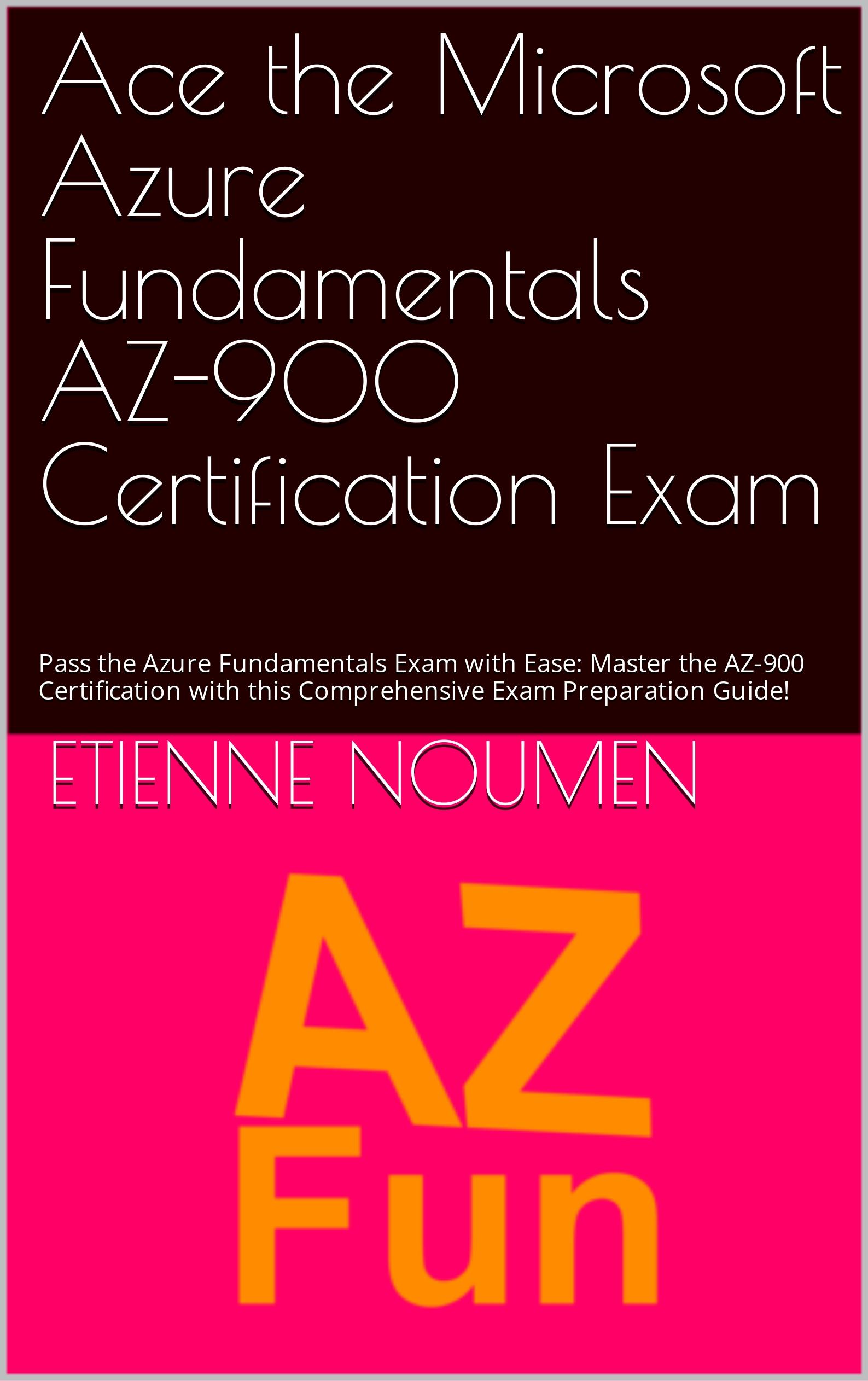
Djamgatech

Read Photos and PDFs Aloud for me iOS
Read Photos and PDFs Aloud for me android
Read Photos and PDFs Aloud For me Windows 10/11
Read Photos and PDFs Aloud For Amazon
Get 20% off Google Workspace (Google Meet) Business Plan (AMERICAS): M9HNXHX3WC9H7YE (Email us for more)
Get 20% off Google Google Workspace (Google Meet) Standard Plan with the following codes: 96DRHDRA9J7GTN6(Email us for more)
FREE 10000+ Quiz Trivia and and Brain Teasers for All Topics including Cloud Computing, General Knowledge, History, Television, Music, Art, Science, Movies, Films, US History, Soccer Football, World Cup, Data Science, Machine Learning, Geography, etc....

List of Freely available programming books - What is the single most influential book every Programmers should read
- Bjarne Stroustrup - The C++ Programming Language
- Brian W. Kernighan, Rob Pike - The Practice of Programming
- Donald Knuth - The Art of Computer Programming
- Ellen Ullman - Close to the Machine
- Ellis Horowitz - Fundamentals of Computer Algorithms
- Eric Raymond - The Art of Unix Programming
- Gerald M. Weinberg - The Psychology of Computer Programming
- James Gosling - The Java Programming Language
- Joel Spolsky - The Best Software Writing I
- Keith Curtis - After the Software Wars
- Richard M. Stallman - Free Software, Free Society
- Richard P. Gabriel - Patterns of Software
- Richard P. Gabriel - Innovation Happens Elsewhere
- Code Complete (2nd edition) by Steve McConnell
- The Pragmatic Programmer
- Structure and Interpretation of Computer Programs
- The C Programming Language by Kernighan and Ritchie
- Introduction to Algorithms by Cormen, Leiserson, Rivest & Stein
- Design Patterns by the Gang of Four
- Refactoring: Improving the Design of Existing Code
- The Mythical Man Month
- The Art of Computer Programming by Donald Knuth
- Compilers: Principles, Techniques and Tools by Alfred V. Aho, Ravi Sethi and Jeffrey D. Ullman
- Gödel, Escher, Bach by Douglas Hofstadter
- Clean Code: A Handbook of Agile Software Craftsmanship by Robert C. Martin
- Effective C++
- More Effective C++
- CODE by Charles Petzold
- Programming Pearls by Jon Bentley
- Working Effectively with Legacy Code by Michael C. Feathers
- Peopleware by Demarco and Lister
- Coders at Work by Peter Seibel
- Surely You're Joking, Mr. Feynman!
- Effective Java 2nd edition
- Patterns of Enterprise Application Architecture by Martin Fowler
- The Little Schemer
- The Seasoned Schemer
- Why's (Poignant) Guide to Ruby
- The Inmates Are Running The Asylum: Why High Tech Products Drive Us Crazy and How to Restore the Sanity
- The Art of Unix Programming
- Test-Driven Development: By Example by Kent Beck
- Practices of an Agile Developer
- Don't Make Me Think
- Agile Software Development, Principles, Patterns, and Practices by Robert C. Martin
- Domain Driven Designs by Eric Evans
- The Design of Everyday Things by Donald Norman
- Modern C++ Design by Andrei Alexandrescu
- Best Software Writing I by Joel Spolsky
- The Practice of Programming by Kernighan and Pike
- Pragmatic Thinking and Learning: Refactor Your Wetware by Andy Hunt
- Software Estimation: Demystifying the Black Art by Steve McConnel
- The Passionate Programmer (My Job Went To India) by Chad Fowler
- Hackers: Heroes of the Computer Revolution
- Algorithms + Data Structures = Programs
- Writing Solid Code
- JavaScript - The Good Parts
- Getting Real by 37 Signals
- Foundations of Programming by Karl Seguin
- Computer Graphics: Principles and Practice in C (2nd Edition)
- Thinking in Java by Bruce Eckel
- The Elements of Computing Systems
- Refactoring to Patterns by Joshua Kerievsky
- Modern Operating Systems by Andrew S. Tanenbaum
- The Annotated Turing
- Things That Make Us Smart by Donald Norman
- The Timeless Way of Building by Christopher Alexander
- The Deadline: A Novel About Project Management by Tom DeMarco
- The C++ Programming Language (3rd edition) by Stroustrup
- Patterns of Enterprise Application Architecture
- Computer Systems - A Programmer's Perspective
- Agile Principles, Patterns, and Practices in C# by Robert C. Martin
- Growing Object-Oriented Software, Guided by Tests
- Framework Design Guidelines by Brad Abrams
- Object Thinking by Dr. David West
- Advanced Programming in the UNIX Environment by W. Richard Stevens
- Hackers and Painters: Big Ideas from the Computer Age
- The Soul of a New Machine by Tracy Kidder
- CLR via C# by Jeffrey Richter
- The Timeless Way of Building by Christopher Alexander
- Design Patterns in C# by Steve Metsker
- Alice in Wonderland by Lewis Carol
- Zen and the Art of Motorcycle Maintenance by Robert M. Pirsig
- About Face - The Essentials of Interaction Design
- Here Comes Everybody: The Power of Organizing Without Organizations by Clay Shirky
- The Tao of Programming
- Computational Beauty of Nature
- Writing Solid Code by Steve Maguire
- Philip and Alex's Guide to Web Publishing
- Object-Oriented Analysis and Design with Applications by Grady Booch
- Effective Java by Joshua Bloch
- Computability by N. J. Cutland
- Masterminds of Programming
- The Tao Te Ching
- The Productive Programmer
- The Art of Deception by Kevin Mitnick
- The Career Programmer: Guerilla Tactics for an Imperfect World by Christopher Duncan
- Paradigms of Artificial Intelligence Programming: Case studies in Common Lisp
- Masters of Doom
- Pragmatic Unit Testing in C# with NUnit by Andy Hunt and Dave Thomas with Matt Hargett
- How To Solve It by George Polya
- The Alchemist by Paulo Coelho
- Smalltalk-80: The Language and its Implementation
- Writing Secure Code (2nd Edition) by Michael Howard
- Introduction to Functional Programming by Philip Wadler and Richard Bird
- No Bugs! by David Thielen
- Rework by Jason Freid and DHH
- JUnit in Action
#BlackOwned #BlackEntrepreneurs #BlackBuniness #AWSCertified #AWSCloudPractitioner #AWSCertification #AWSCLFC02 #CloudComputing #AWSStudyGuide #AWSTraining #AWSCareer #AWSExamPrep #AWSCommunity #AWSEducation #AWSBasics #AWSCertified #AWSMachineLearning #AWSCertification #AWSSpecialty #MachineLearning #AWSStudyGuide #CloudComputing #DataScience #AWSCertified #AWSSolutionsArchitect #AWSArchitectAssociate #AWSCertification #AWSStudyGuide #CloudComputing #AWSArchitecture #AWSTraining #AWSCareer #AWSExamPrep #AWSCommunity #AWSEducation #AzureFundamentals #AZ900 #MicrosoftAzure #ITCertification #CertificationPrep #StudyMaterials #TechLearning #MicrosoftCertified #AzureCertification #TechBooks
Top 1000 Canada Quiz and trivia: CANADA CITIZENSHIP TEST- HISTORY - GEOGRAPHY - GOVERNMENT- CULTURE - PEOPLE - LANGUAGES - TRAVEL - WILDLIFE - HOCKEY - TOURISM - SCENERIES - ARTS - DATA VISUALIZATION

Top 1000 Africa Quiz and trivia: HISTORY - GEOGRAPHY - WILDLIFE - CULTURE - PEOPLE - LANGUAGES - TRAVEL - TOURISM - SCENERIES - ARTS - DATA VISUALIZATION

Exploring the Pros and Cons of Visiting All Provinces and Territories in Canada.

Exploring the Advantages and Disadvantages of Visiting All 50 States in the USA

Health Health, a science-based community to discuss health news and the coronavirus (COVID-19) pandemic
- The pull-out method: Why this common contraceptive fails to deliverby /u/Kampala_Dispatch on July 26, 2024 at 7:51 pm
submitted by /u/Kampala_Dispatch [link] [comments]
- Health Canada data reveals surprising number of adverse cannabis reactions (spoiler: it's small)by /u/carajuana_readit on July 26, 2024 at 5:49 pm
submitted by /u/carajuana_readit [link] [comments]
- Online portals deliver scary health news before doctors can weigh inby /u/washingtonpost on July 26, 2024 at 4:37 pm
submitted by /u/washingtonpost [link] [comments]
- Vaccine 'sharply cuts risk of dementia' new study findsby /u/SubstantialSnow7114 on July 26, 2024 at 1:53 pm
submitted by /u/SubstantialSnow7114 [link] [comments]
- Calls to limit sexual partners as mpox makes a resurgence in Australiaby /u/boppinmule on July 26, 2024 at 12:31 pm
submitted by /u/boppinmule [link] [comments]
Today I Learned (TIL) You learn something new every day; what did you learn today? Submit interesting and specific facts about something that you just found out here.
- TIL that in Thailand, if your spouse cheats on you, you can legally sue their lover for damages and can receive up to 5,000,000 THB ($140,000 USD) or more under Section 1523 of the Thai Civil and Commercial Codeby /u/Mavrokordato on July 26, 2024 at 6:57 pm
submitted by /u/Mavrokordato [link] [comments]
- TIL that with a population of 170 million people, Bangladesh is the most populous country to have never won a medal at the Olympic Games.by /u/Blackraven2007 on July 26, 2024 at 6:49 pm
submitted by /u/Blackraven2007 [link] [comments]
- TIL a psychologist got himself admitted to a mental hospital by claiming he heard the words "empty", "hollow" and "thud" in his head. Then, it took him two months to convince them he was sane, after agreeing he was insane and accepting medication.by /u/Hadeverse-050 on July 26, 2024 at 6:44 pm
submitted by /u/Hadeverse-050 [link] [comments]
- TIL Senator John Edwards of NC, USA cheated on his wife and had a child with another woman. He tried to deny it but eventually caved and admitted his mistake. He used campaign funds and was indicted by a grand jury. His life story inspired the show "The Good Wife" by Robert & Michelle Kingby /u/AdvisorPast637 on July 26, 2024 at 6:09 pm
submitted by /u/AdvisorPast637 [link] [comments]
- TIL Zhang Shuhong was a Chinese businessman who committed suicide after toys made at his factory for Fisher-Price (a division of Mattel) were found to contain lead paintby /u/Hopeful-Candle-4884 on July 26, 2024 at 4:43 pm
submitted by /u/Hopeful-Candle-4884 [link] [comments]
Reddit Science This community is a place to share and discuss new scientific research. Read about the latest advances in astronomy, biology, medicine, physics, social science, and more. Find and submit new publications and popular science coverage of current research.
- Human decision makers who possess the authority to override ML predictions may impede the self-correction of discriminatory models and even induce initially unbiased models to become discriminatory with timeby /u/f1u82ypd on July 26, 2024 at 6:29 pm
submitted by /u/f1u82ypd [link] [comments]
- Study uses Game of Thrones (GOT) to advance understanding of face blindness: Psychologists have used the TV series GOT to understand how the brain enables us to recognise faces. Their findings provide new insights into prosopagnosia or face blindness, a condition that impairs facial recognition.by /u/AnnaMouse247 on July 26, 2024 at 5:14 pm
submitted by /u/AnnaMouse247 [link] [comments]
- Specific genes may be related to the trajectory of recovery for stroke survivors, study finds. Researchers say genetic variants were strongly associated with depression, PTSD and cognitive health outcomes. Findings may provide useful insights for developing targeted therapies.by /u/AnnaMouse247 on July 26, 2024 at 5:08 pm
submitted by /u/AnnaMouse247 [link] [comments]
- New experimental drug shows promise in clearing HIV from brain: originally developed to treat cancer, study finds that by targeting infected cells in the brain, drug may clear virus from hidden areas that have been a major challenge in HIV treatment.by /u/AnnaMouse247 on July 26, 2024 at 4:57 pm
submitted by /u/AnnaMouse247 [link] [comments]
- Rapid diagnosis sepsis tests could decrease result wait times from days to hours, researchers report in Natureby /u/Science_News on July 26, 2024 at 3:50 pm
submitted by /u/Science_News [link] [comments]
Reddit Sports Sports News and Highlights from the NFL, NBA, NHL, MLB, MLS, and leagues around the world.
- Charles Barkley leaves door open to post-TNT job optionsby /u/PrincessBananas85 on July 26, 2024 at 8:47 pm
submitted by /u/PrincessBananas85 [link] [comments]
- Report: Nuggets sign Westbrook to 2-year, $6.8M dealby /u/Oldtimer_2 on July 26, 2024 at 8:13 pm
submitted by /u/Oldtimer_2 [link] [comments]
- Dolphins signing Tua to 4-year, $212.4M extensionby /u/Oldtimer_2 on July 26, 2024 at 8:09 pm
submitted by /u/Oldtimer_2 [link] [comments]
- Rams cornerback Derion Kendrick suffers season-ending torn ACLby /u/Oldtimer_2 on July 26, 2024 at 8:06 pm
submitted by /u/Oldtimer_2 [link] [comments]
- Hosting the Olympics has become financially untenable, economists sayby /u/toaster_strudel_ on July 26, 2024 at 7:34 pm
submitted by /u/toaster_strudel_ [link] [comments]
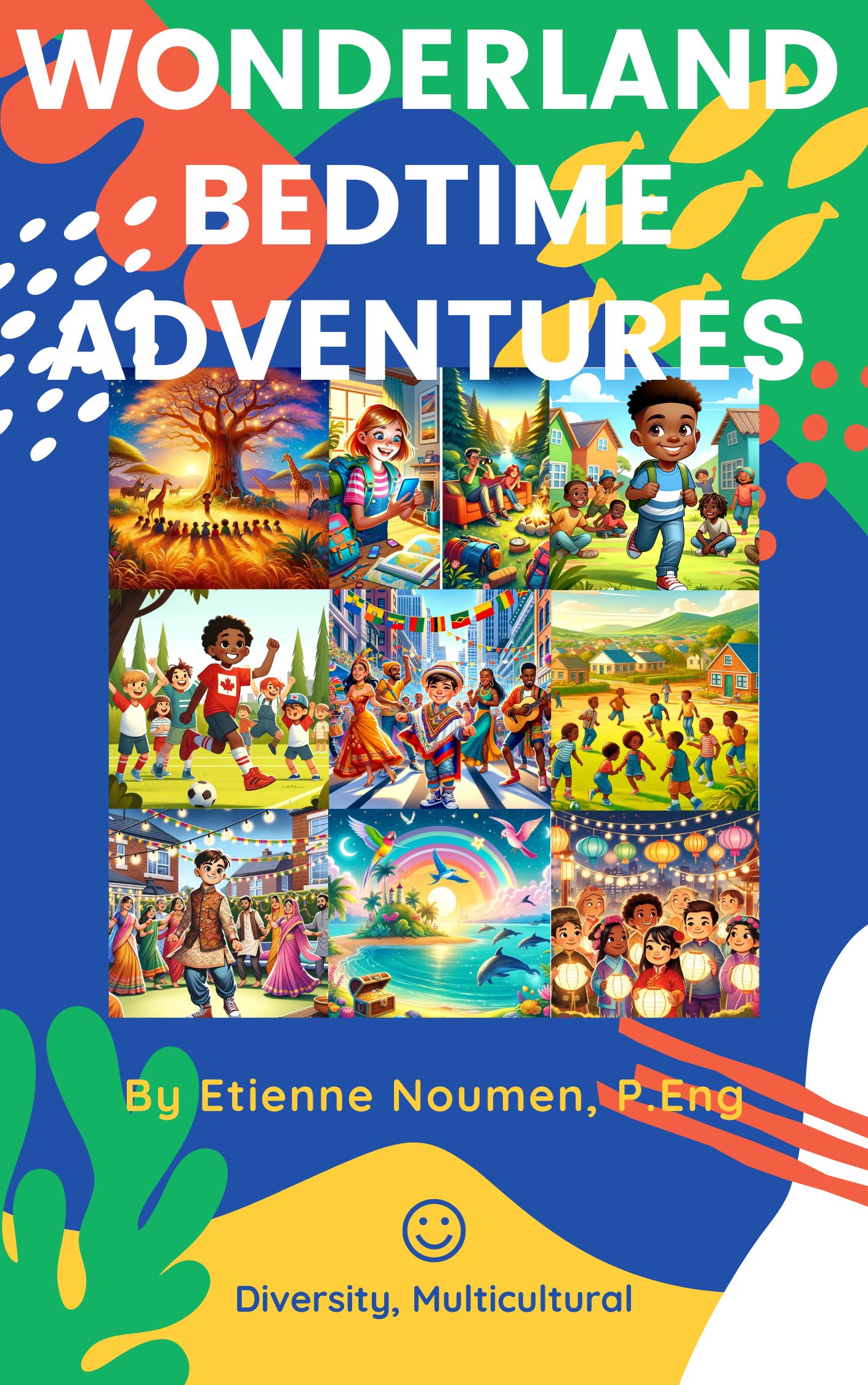
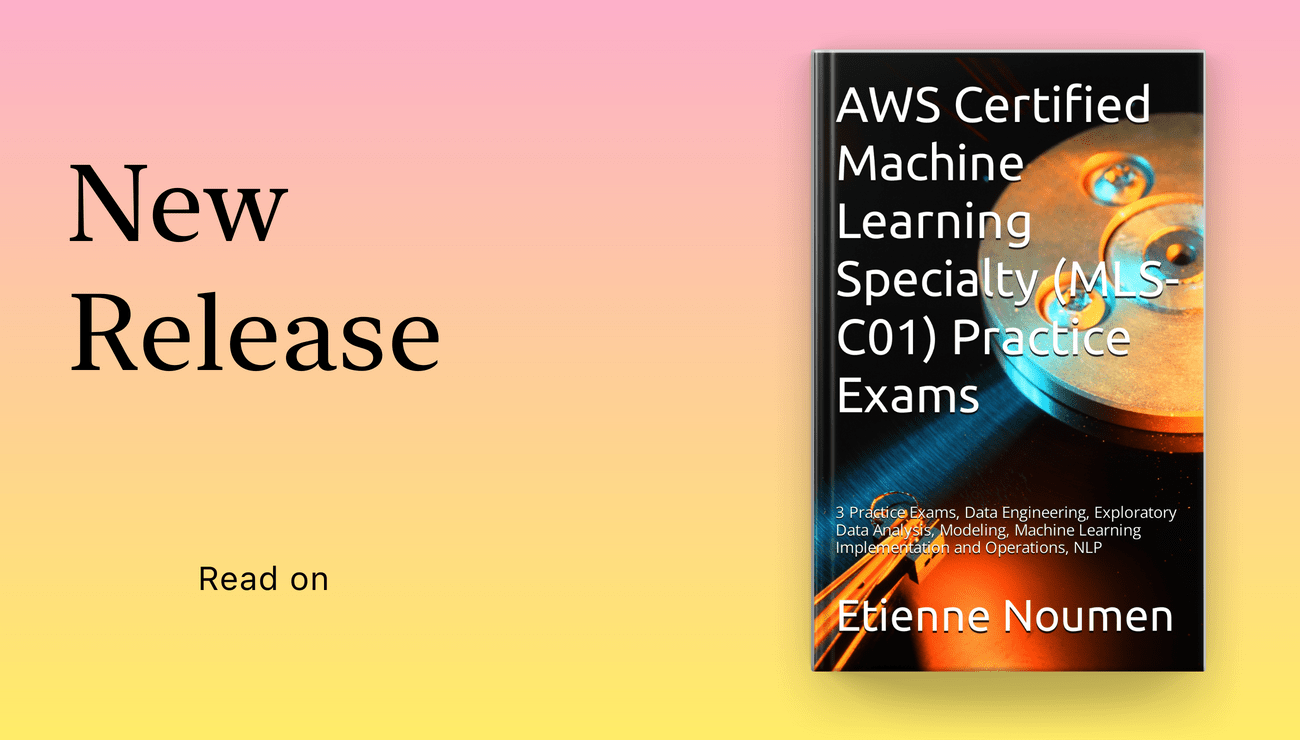


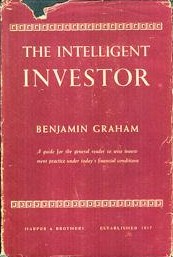
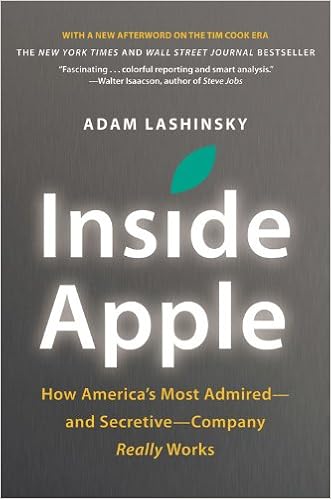


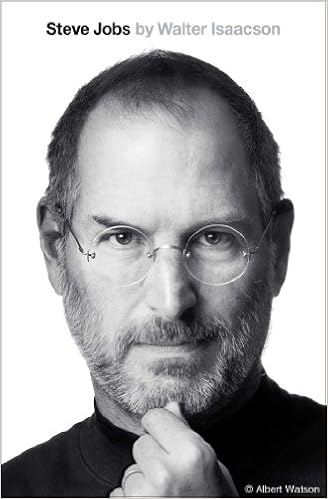



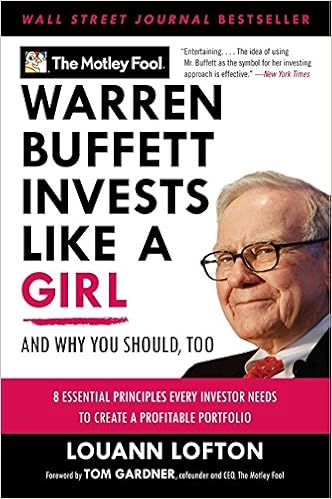
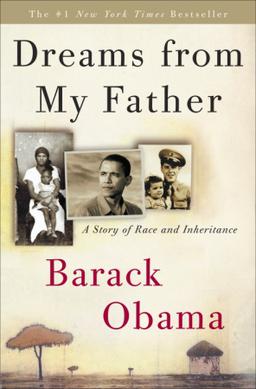
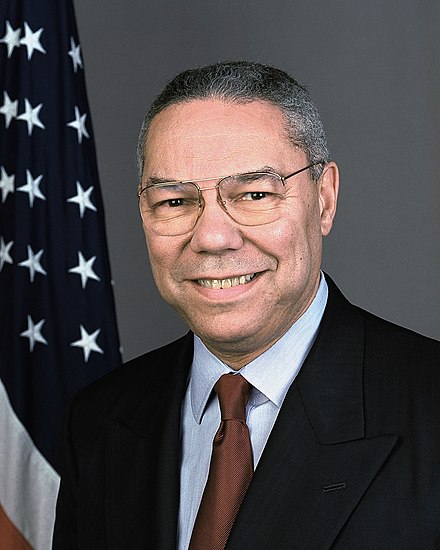




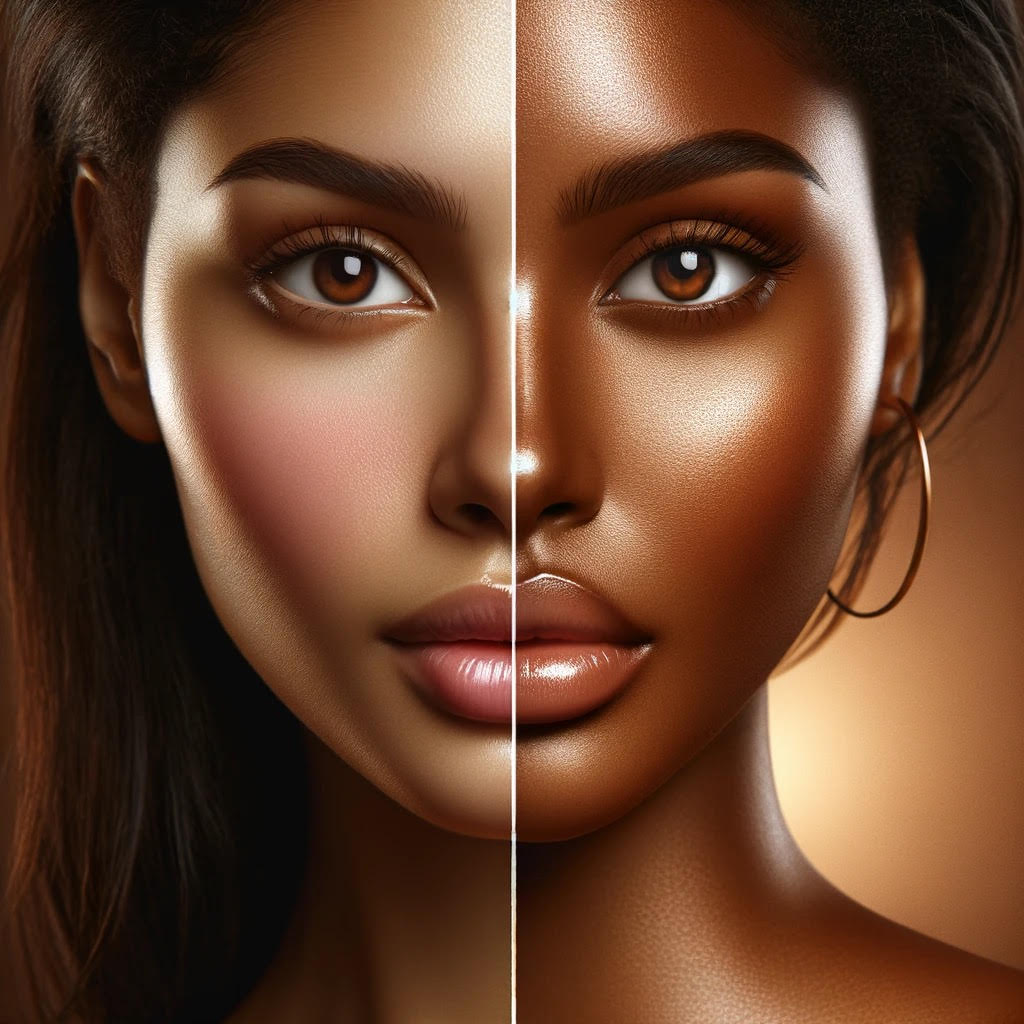


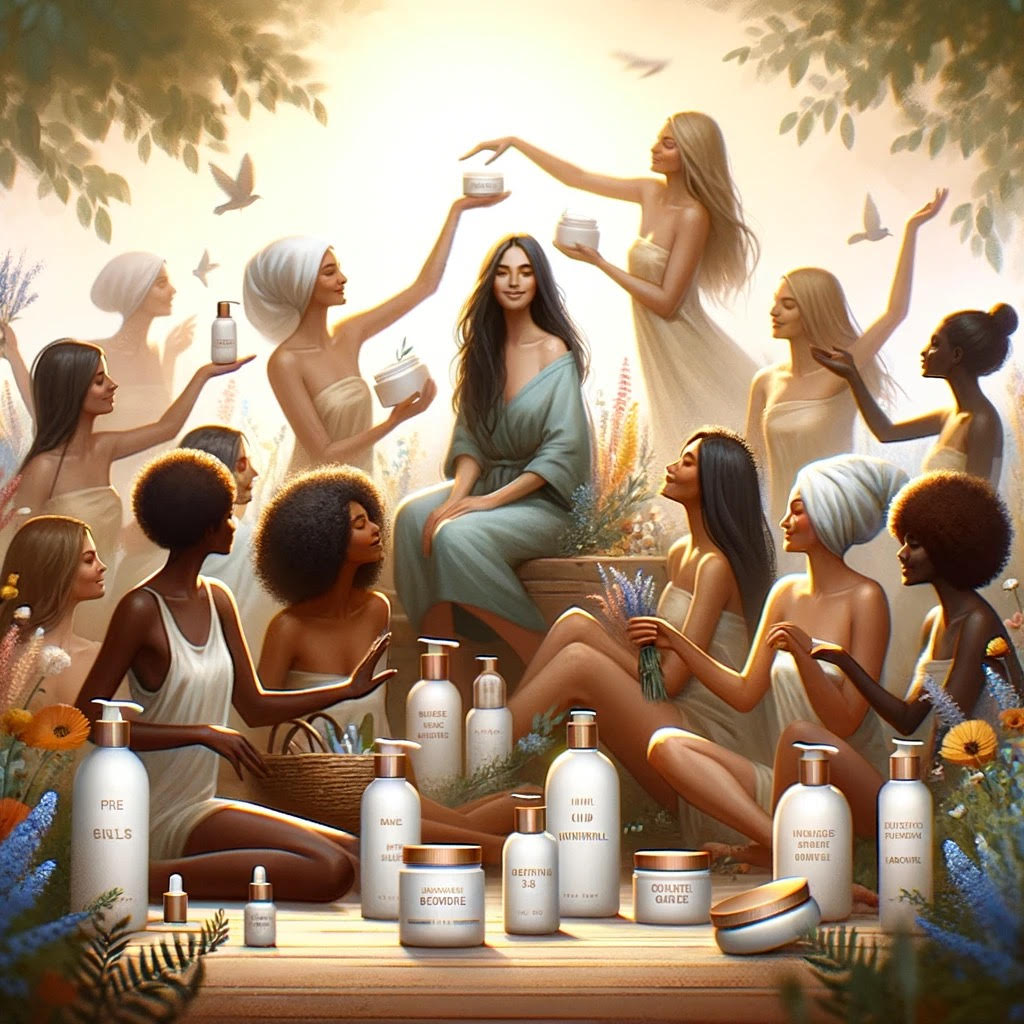





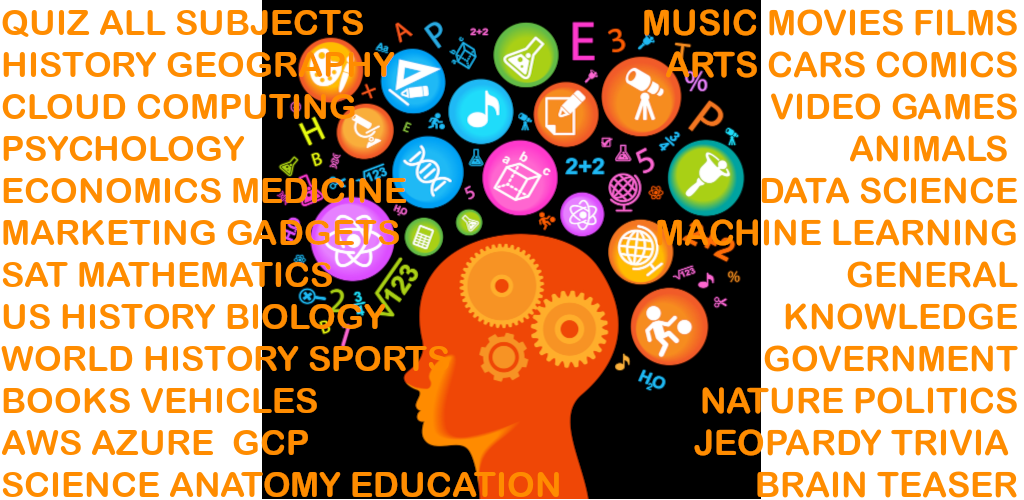

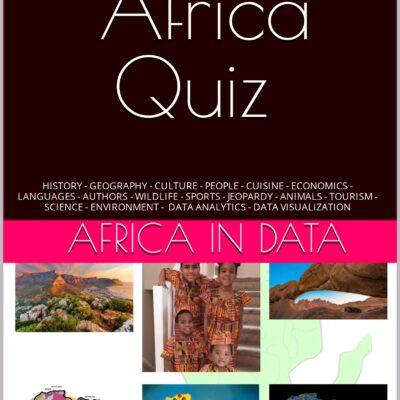

 96DRHDRA9J7GTN6
96DRHDRA9J7GTN6